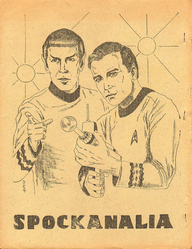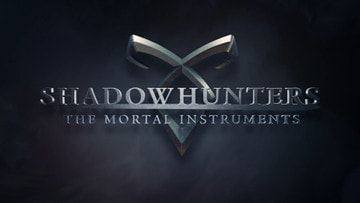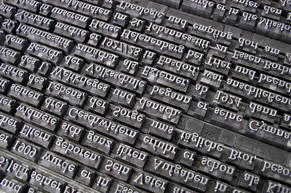 image via amazingstoriesmag.com image via amazingstoriesmag.com By Mikaela Langdon Before the internet, fans of books, movies, and television shows had to keep their opinions and ideas about characters and storylines largely to themselves. At most, they might have shared them with friends or relatives. Now we’re in an age where people can share ideas at the push of a button. This has opened up the doors for something known as “fanfiction”: original stories with characters, settings, and sometimes other characteristics borrowed from popular culture. This concept originated, surprisingly, prior to the internet age in Star Trek fanzines such as Spockanalia (1967). This zine contained fanfiction written about the popular science-fiction show and was mailed to super-fans for their enjoyment. With the invention and advancement of the internet, fanfiction has practically become its own industry, allowing fans to become co-creators with the writers they so admire. These works are not intended for publication, at least not in their initial format, and give full credit to the original authors or creators. Fanfiction is not meant to overshadow the original content but rather to celebrate it. But what happens when a fanfiction author takes characters we all know and love and makes them her own, complete with a new backstory and personality? At what point does fanfiction go far enough from the source and just become regular fiction? Rainbow Rowell raises this question in her book Fangirl, a Young Adult novel starring a fanfiction writer. Cath, the protagonist, has earned a strong following writing “fic” for the fictional Simon Snow series. In her stories, she takes two opposing characters and orchestrates a romance for them. She makes up backstories, battles, character traits, even settings that are all her own. When Cath turns in a fic for her creative writing class, she’s proud of her work and is surprised when her professor fails her for plagiarism. “These are not your characters,” the professor says. Except at this point, Cath feels like they are. The thing is, every creative person takes ideas from the creative people before them. Kirby Ferguson produced a whole video essay about it. The things we read, watch, listen to, etc. constantly influence the work we produce. After all, energy has to have a source so why would creative energy be any different? Of course, fanfiction writers are openly using characters, settings, and concepts from successful works so it makes the line between stealing and creating something new a lot harder to find.  image via Wikipedia image via Wikipedia Cassandra Clare, author of the Mortal Instruments series, is someone who often sparks controversy in this area. Before she became the bestselling author of a book series-turned-popular-television-series, Cassandra Clare wrote Harry Potter fanfiction. Most famously, she wrote a trilogy about the character Draco Malfoy. When she released the first Mortal Instruments book, she removed her fanfiction from the internet but readers were quick to point out the similarities between it and her new book. Clare and her team were quick to defend her original content, claiming the characters and plot were all her own. In reality, both are correct. While it’s true that the first Mortal Instruments book has word-for-word sections that connect to her Draco fanfiction, those sections were original to Clare. For instance, she gave one of her MI characters the same backstory that she gave fanfiction Draco, a completely original backstory that was separate from what J.K. Rowling created.  image via pixabay image via pixabay When fully examined, the case against Clare is faulty. Yes, she used aspects of fanfiction in published work but that fanfiction was only loosely connected to the source material. Clare’s bigger misdemeanor, especially in the eyes of the fanfiction community, was deleting all her online content and rejecting the very people who first gave her a platform. For Clare, it’s almost as if her fanfiction past is something she considers shameful. If she had acknowledged her roots and been more open, saying something as simple as, “Sure, this work may have been inspired by J.K. Rowling and my fanfiction but the content is entirely my own.” While for some it’s more positive than others, there’s no denying that fanfiction has had a significant impact on today’s literature. It is encouraging young writers as well as creating critical readers who can either make or break a bestselling author’s reputation. As the internet continues to grow and fandoms along with it, one thing is for certain: fanfiction is here to stay.
0 Comments
Leave a Reply. |
Archives
July 2024
Categories
All
|
|
Glassworks is a publication of Rowan University's Master of Arts in Writing 260 Victoria Street • Glassboro, New Jersey 08028 [email protected] |
All Content on this Site (c) 2024 Glassworks
|

 RSS Feed
RSS Feed
